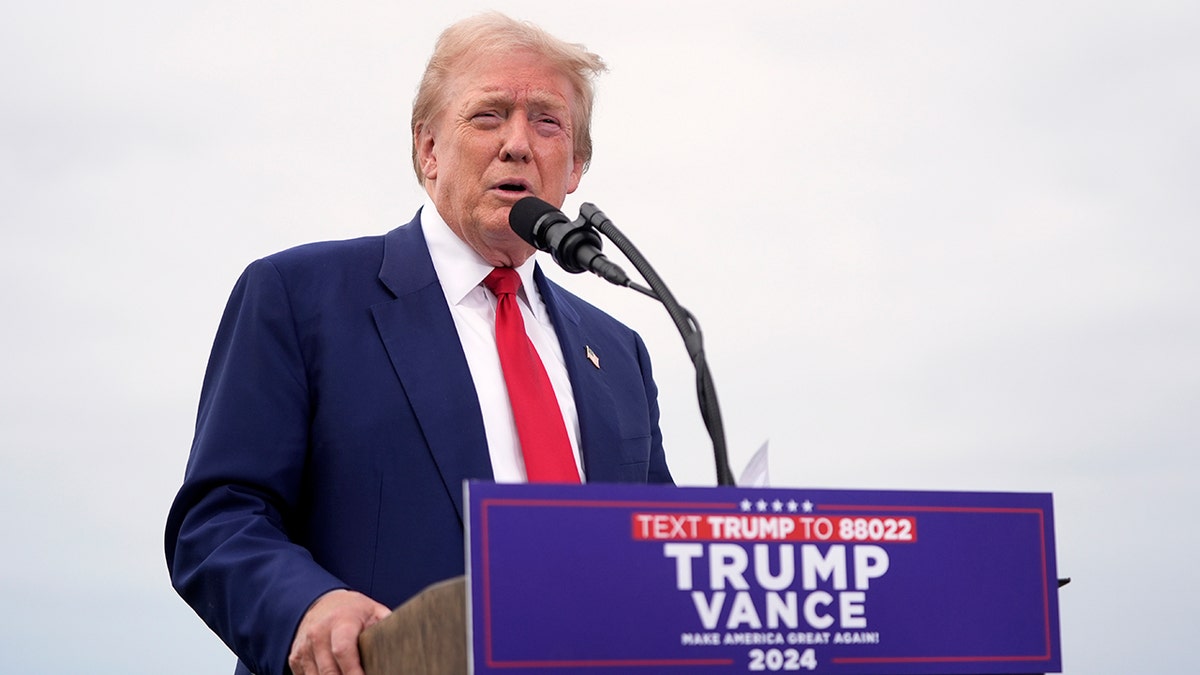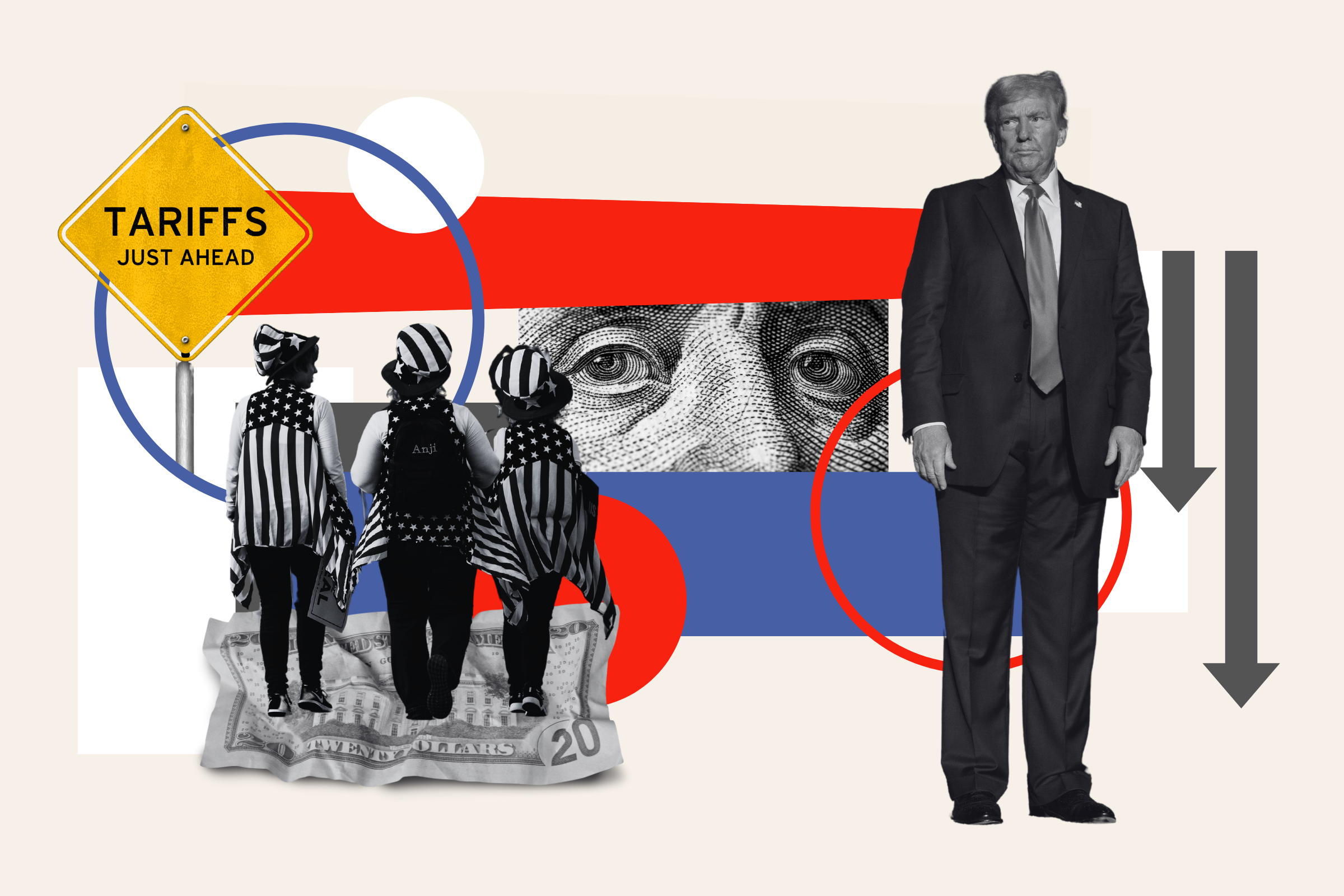China's Automotive Market: Challenges For BMW, Porsche, And Other Foreign Brands

Table of Contents
Intense Competition from Domestic Brands
The rise of powerful domestic players is a primary challenge for foreign automakers in China. This competition manifests in two key areas: the explosive growth of Chinese EV manufacturers and the increasing competitiveness of established domestic brands.
Rise of Chinese EV Manufacturers
The rapid growth of Chinese electric vehicle (EV) manufacturers like BYD, NIO, and Xpeng poses a significant threat to established foreign brands. These companies leverage several key advantages:
- Aggressive pricing strategies: They undercut foreign competitors, making EVs accessible to a broader range of Chinese consumers.
- Strong government support and subsidies: Government policies heavily favor domestic EV brands, providing substantial financial incentives and boosting their market share.
- Rapid innovation in battery technology and autonomous driving: Chinese EV manufacturers are at the forefront of technological advancements, constantly pushing the boundaries of EV capabilities.
- Targeted marketing campaigns: Their marketing strategies resonate deeply with the preferences and aspirations of the Chinese consumer base. Understanding local preferences is crucial for success in China's automotive market.
The success of these companies highlights the need for foreign brands to invest heavily in their own EV technology and adapt to the rapidly changing landscape of the Chinese automotive market.
Established Chinese Automakers
Long-standing domestic brands like Geely and Great Wall Motors are also increasingly competitive, offering sophisticated vehicles at attractive price points. Their success stems from:
- Improved quality and design: Domestic vehicles have significantly improved in quality and design, rivaling and even surpassing some foreign brands in certain aspects.
- Strong dealer networks and after-sales service: Extensive dealer networks ensure readily available service and support, vital for customer satisfaction in a large and diverse market like China.
- Leveraging established brand recognition: These brands benefit from pre-existing brand recognition and trust within the Chinese market, a significant advantage over newcomers.
- Strategic partnerships and joint ventures: Collaborations with foreign tech companies provide access to advanced technologies and expertise, further enhancing their competitiveness.
Navigating Regulatory Hurdles and Government Policies
The regulatory landscape in China's automotive market presents significant obstacles for foreign brands.
Stringent Emission Standards and Regulations
China is implementing increasingly stringent emission standards and regulations, pushing for cleaner vehicles and sustainable practices. This presents considerable challenges:
- High costs associated with meeting stricter emission targets: Compliance requires substantial investments in research, development, and manufacturing processes.
- Complex regulatory landscape and bureaucratic processes: Navigating the intricate regulatory environment can be time-consuming and costly.
- Need for significant R&D investment in cleaner technologies: Foreign automakers must invest heavily in developing cleaner technologies to meet and exceed these standards.
- Potential for delays in product launches: Regulatory approvals can cause delays, impacting market entry and competitiveness.
These factors significantly impact the profitability and speed of market entry for foreign automakers.
Import Tariffs and Taxes
High import tariffs and taxes increase the cost of imported vehicles, significantly impacting pricing and competitiveness:
- Impact on profitability margins: Higher import costs directly reduce profitability for foreign brands selling imported vehicles.
- Need for local manufacturing: Establishing local manufacturing facilities is crucial to mitigate the impact of import costs and enhance competitiveness in China's automotive market.
- Potential for increased pricing: To offset the higher costs, foreign brands may need to increase their prices, potentially impacting sales volumes.
- Strategic implications for pricing strategies and market penetration: Pricing strategies must be carefully calibrated to balance profitability and market penetration in this competitive landscape.
Understanding Unique Consumer Preferences and Cultural Nuances
Successfully penetrating the Chinese automotive market necessitates a deep understanding of consumer preferences and cultural nuances.
Preference for Specific Features and Technologies
Chinese consumers have unique preferences that differ from those in other markets:
- Demand for advanced connectivity features and infotainment systems: Connectivity and advanced technology are highly valued by Chinese consumers.
- Strong preference for larger vehicles and SUVs: SUVs and larger vehicles are highly popular due to cultural preferences and practical considerations.
- Emphasis on brand prestige and social status: Brand image and social status play a significant role in purchasing decisions.
- Growing interest in electric and hybrid vehicles: Environmental concerns and government incentives are driving increasing demand for electric and hybrid vehicles.
Marketing and Brand Building Strategies
Adapting marketing and brand-building strategies is crucial for success:
- Importance of effective digital marketing and social media engagement: Digital marketing is paramount, given the high penetration of mobile and social media in China.
- Need for localized marketing campaigns and messaging: Marketing efforts must resonate with local cultural values and preferences.
- Building strong relationships with key influencers and opinion leaders: Collaborations with key influencers can significantly boost brand awareness and credibility.
- Understanding the importance of brand storytelling and emotional connection: Creating compelling brand narratives and establishing emotional connections with consumers is essential.
Conclusion
China's automotive market presents a complex landscape of opportunities and challenges for foreign brands like BMW and Porsche. Intense competition from domestic brands, navigating a challenging regulatory environment, and understanding unique consumer preferences are critical factors that determine success. Foreign automakers need to adapt their strategies, invest in local production, prioritize innovation in electric vehicles, and focus on building strong relationships with Chinese consumers to thrive in this dynamic and ever-evolving market. Successfully navigating these challenges is key to capitalizing on the potential of China's automotive market and securing a long-term presence in this crucial region. Understanding the nuances of China's automotive market is paramount for any foreign brand aiming for success.

Featured Posts
-
 Lightning 100 New Music Monday February 24th And 25th 2025
May 20, 2025
Lightning 100 New Music Monday February 24th And 25th 2025
May 20, 2025 -
 Formula 1 Yeni Sezon Tarihler Sueruecueler Ve Beklentiler
May 20, 2025
Formula 1 Yeni Sezon Tarihler Sueruecueler Ve Beklentiler
May 20, 2025 -
 Charles Leclerc Partners With Chivas Regal In New Global Campaign
May 20, 2025
Charles Leclerc Partners With Chivas Regal In New Global Campaign
May 20, 2025 -
 L Affaire Jaminet Kylian S Exprime Sur Le Transfert De Son Frere Melvyn
May 20, 2025
L Affaire Jaminet Kylian S Exprime Sur Le Transfert De Son Frere Melvyn
May 20, 2025 -
 World Class Striker Transfer To Man Utd Agents Jet Visit Spurs Negotiations
May 20, 2025
World Class Striker Transfer To Man Utd Agents Jet Visit Spurs Negotiations
May 20, 2025
Latest Posts
-
 The Gretzky Trump Connection Impact On The Hockey Legends Image
May 20, 2025
The Gretzky Trump Connection Impact On The Hockey Legends Image
May 20, 2025 -
 Wayne Gretzky And Donald Trump A Legacy Under Scrutiny
May 20, 2025
Wayne Gretzky And Donald Trump A Legacy Under Scrutiny
May 20, 2025 -
 Gretzkys Loyalty Examining The Legacy Amid Trump Ties
May 20, 2025
Gretzkys Loyalty Examining The Legacy Amid Trump Ties
May 20, 2025 -
 Wayne Gretzky And The Trump Tariff Controversy A National Conversation
May 20, 2025
Wayne Gretzky And The Trump Tariff Controversy A National Conversation
May 20, 2025 -
 Trumps Tariffs Gretzkys Loyalty A Canadian Debate Ignited
May 20, 2025
Trumps Tariffs Gretzkys Loyalty A Canadian Debate Ignited
May 20, 2025
